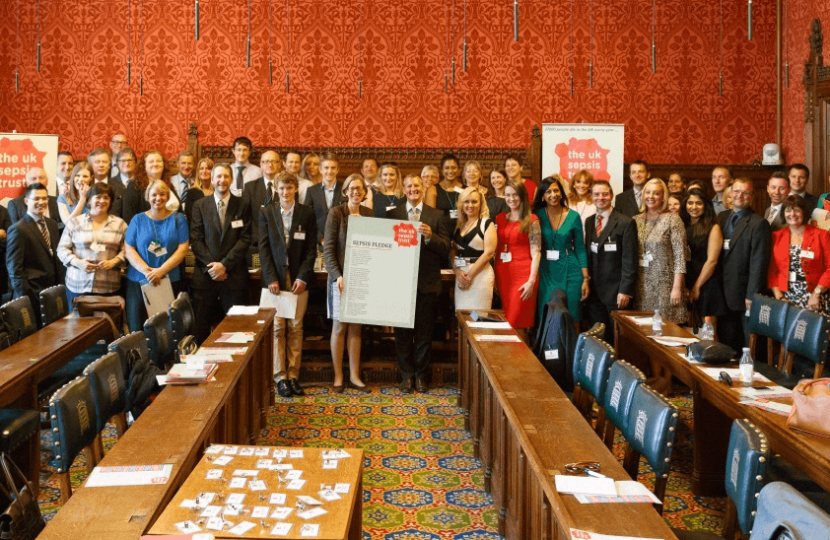
I first heard about Sepsis in 2010 when I was told about a particularly upsetting experience that my sister, who is a nurse had gone through when losing a patient to Sepsis. What amazed me then was how prevalent and lethal Sepsis is, yet what little awareness and action was being taken.
Sepsis is a condition that claims the lives of 37,000 people in the UK every year – more than breast cancer, bowel cancer and prostate cancer combined. Health professionals, led by the UK Sepsis Trust, have identified simple timely interventions and procedures, labelled the ‘Sepsis Six’, as a standard of care for patients when delivered within one hour. Early Sepsis treatment is cost effective, reducing hospital and expensive critical care bed days for patients, and saves lives. If effectively implemented across the country, these interventions could prevent 12,500 unnecessary deaths and save much of the £2 billion that Sepsis costs the NHS. Put simply, a focus on Sepsis could deliver results quickly and save the NHS money. This has been proven in other countries and is relatively simple to enact.
Working with the UK Sepsis Trust I set up and subsequently was Chair of the All Party Parliamentary Group for Sepsis, a group of MPs and peers working with the UK Sepsis Trust to improve Sepsis care.
The group has a range of objectives, as follows:
- Inform and educate Parliamentarians about sepsis, a condition that kills over 37,000 people a year
- Promote and encourage actions that lead to early and reliable recognition and treatment of the condition in the community, in hospitals and at the interface
- Help increase public and professional awareness of the condition
- Facilitate the development of a national registry for sepsis
- Inform parliamentarians of the work of medical professionals and clinical research
There has been progress, such as NICE announcing new guidance for patients with severe Sepsis. Following on from the report of the Parliamentary and Health Service Ombudsman titled ‘Time to act: severe sepsis: rapid diagnosis and treatment saves lives’ the Group worked to complement this work with an action plan to help realise the recommendations of the landmark report. Subsequently the Secretary of State for health launched plans that include the creation of new NICE clinical guidelines, the introduction of an incentive scheme for hospitals, the launch of a new public awareness campaign and the development of a new diagnostic tool for GPs to recognise symptoms in children under 5s.
Secretary of State for Health Jeremy Hunt MP said he wanted to make tackling sepsis as important to the NHS as tackling the superbugs Clostridium difficile (C.diff) and meticillin-resistant staphylococcus aureusis (MRSA).
“I want the NHS to become the safest healthcare system in the world,” he said.
Over the last two years I have been inspired by the bravery of two of my constituents Melissa Mead and Mark Jermyn who have spoken out about the effects of losing their babies to sepsis. Their relentless campaigning has brought much needed increased public awareness.
Sarah Newton article on Sepsis published by ConHome
